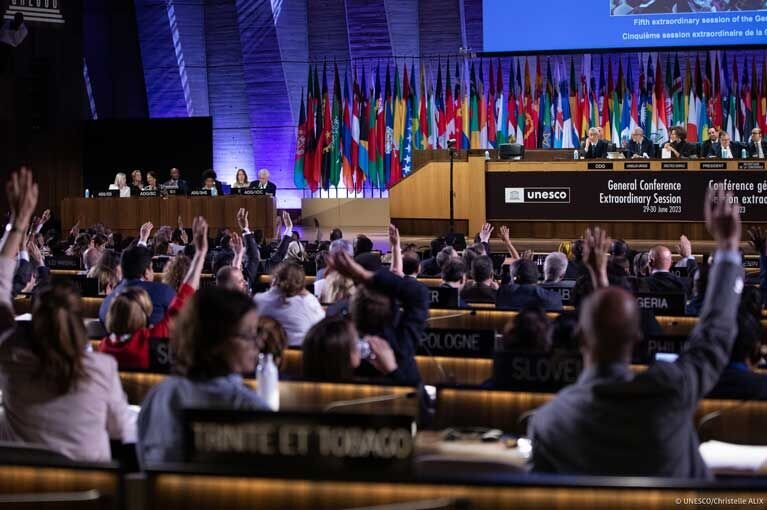Iran selected to host UNESCO session in 2025

TEHRAN - Iran has been chosen to host a UNESCO session on safeguarding intangible cultural heritage in 2025.
The decision was made during the tenth session of the General Assembly of the 2003 Convention, which took place from June 11 to 12 at UNESCO headquarters in Paris.
According to Mehr news agency, the assembly recognized the successful efforts of the Tehran Intangible Heritage Center in addressing climate change impacts and capacity building in the region. Consequently, the Islamic Republic was chosen as the center for intangible cultural heritage studies for West and Central Asia and will host the 2025 meeting.
The decision to appoint Iran as the host was approved by the Secretariat of the 2003 Convention which includes centers from Europe, Asia-Pacific, Southern Africa, Latin America, and the Persian Gulf region.
UNESCO wishes to protect intangible cultural heritage, or ‘safeguard’ it. To protect, or secure, means: to give a future to intangible cultural heritage, to find a form that also appeals to future generations, and to take away the bottlenecks that block the way to the future of this ICH.
Intangible cultural heritage is always dynamic and under development. Protection, therefore, does not mean: keeping it as it used to be in the past. UNESCO does not want to turn ICH into museum pieces.
The UNESCO Convention for the Safeguarding of Intangible Cultural Heritage came into force in 2006, framing the international and national practices and policies associated with intangible cultural heritage. This volume critically and reflexively examines these practices and policies, providing an accessible account of the different ways in which intangible cultural heritage has been defined and managed in both national and international contexts.
As Safeguarding Intangible Heritage reveals, the concept and practices of safeguarding are complicated and often contested, and there is a need for international debate about the meaning, nature, and value of heritage and what it means to 'safeguard' it.
According to the UN cultural body, Safeguarding Intangible Heritage presents a significant cross-section of ideas and practices from some of the key academics and practitioners working in the area, whose areas of expertise span anthropology, law, heritage studies, linguistics, archeology, museum studies, folklore, architecture, Indigenous studies, and history.
AM
Leave a Comment